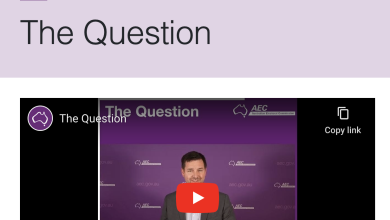The following briefly discusses proposals of the 2017 Federal Government Budget and as such adoption depends on the proposals being passed as legislation.
The focus here is on Home owners and investors in property.
FIRST HOME BUYERS
First Home Buyers will be able to salary sacrifice $15,000 per year from July 1st 2017 up to a maximum of $30,000, to deposit into their Super Fund as savings toward a deposit for their first home. These pre-tax deposits, as well as deemed earnings on the deposits will be taxed at 15%.
These funds plus earnings on the funds can be withdrawn from 1st July 2018. On withdrawal, they will be taxed at marginal tax rates, less a 30% offset.
Because of the better growth rate of Superannuation Funds and the concessional rate of tax, the overall benefit could be as high as a 30% increase in savings.
First Home Buyers still need a plan to save outside this arrangement and should develop a relationship with a Finance or Mortgage Broker to help them establish a plan to get into their first home. I am more than happy to help point you in the right direction.
NEGATIVE GEARING
From 1 July 2017 deductions for plant and equipment items such as washing machines and ceiling fans will only be allowed if the investor purchased them independently and not as part of the property purchase. Multiple deductions by successive investors buying the same property will not be allowed for these items. Existing investments will be treated under the existing rules and purchases after Budget night will have the new rules applied.
From 1st July 2017 investors will not be able to claim tax deductions for travel expenses “related to inspecting, maintaining or collecting rent for a residential rental property”.
Negative Gearing implies you are planning to lose money on your investment. There are ways to make money in property without making a loss and relying on capital gain to make sense of the investment. Check with Sandra before buying a negatively geared property whatever your income.
EMPTY HOUSES
From 7.30pm on budget night 2017, foreign owners who make a foreign investment application for residential property, will be charged an annual vacancy charge for properties not occupied for six months each year.
RETIREES
Older Australians will be encouraged to downsize. From 1st July 2018 people aged 65 and older will be able to make a non-taxed contribution of up to $300,000 to their Superannuation after selling their home, in addition to any other contributions they are eligible to make.
I don’t believe in older Australians selling their greatest asset and downsizing unless that is what they really want to do. It is very expensive to downsize. The costs include Real Estate Agents fees upward of 2.2% of the sales price, plus Stamp Duty on the new purchase, plus moving costs, plus the opportunity cost of larger capital gains on a more expensive home which almost certainly will be in an area with much higher capital growth.
This adds up to a large sum of money lost forever, not to mention the emotional cost and upheaval of getting rid of loved possessions and moving away from a familiar community and family and friends.
A better solution in many cases is to take a Reverse Mortgage where equity can be released from a home and used for any purpose i.e. expenses, health costs, travel and lifestyle, with no repayments made until last owner passes or permanently moves into full time care. Please call me on 9653 2034 if you want information or help with this option.
AFFORDABLE HOUSING
The Capital Gains Tax discount will increase from 50 per cent to 60 per cent for qualifying affordable housing provided to tenants on low to moderate incomes with rent charged below the private rental market rate, and managed through a registered community housing provider. The investment must be held for a minimum period of three years.
BANK TAX
A tax on bank liabilities for banks with greater than $100 billion of liabilities is great news as the big banks make such amazing profits however, we all know ultimately either the shareholders including Superannuation Funds and Mortgage holders are the ones who will ultimately pay this tax in reduced dividends or increased fees and interest charges.
JOB CREATION
Increased Transport and Infrastructure spending will create jobs which should help the economy.
EDUCATION FUNDING
Education funding changes include an additional $18.6 Billion in school funding over the next decade with up to 24 elite private and Catholic schools to lose some funding and an increase in university fees of 7.5% with higher repayments on HECS loans.
CHILD CARE FUNDING
The Child Care Subsidy for families earning more than $185,710 in 2017-18 will face an annual cap of $10,000 whereas families earning up to $185,710 in 2017-18 will not face a cap.
SOME IMPACTS OR ASSUMPTIONS
According to the Government the economy will expand by around 3% in the year to June 2018, unemployment should remain below 6%, inflation will increase to 2.25% in 2018, wages growth will progressively increase, commodity prices to remain at around current levels and the Australian dollar will go slightly lower.
WIN
If you would like a free e-book on “The 7 Steps to Mortgage Freedom and Wealth Through Property” email [email protected] and we will send you a link to download it. If you would like a hard copy of the book email name and phone details and you will go in the draw to win one of 10 copies we are giving away.










